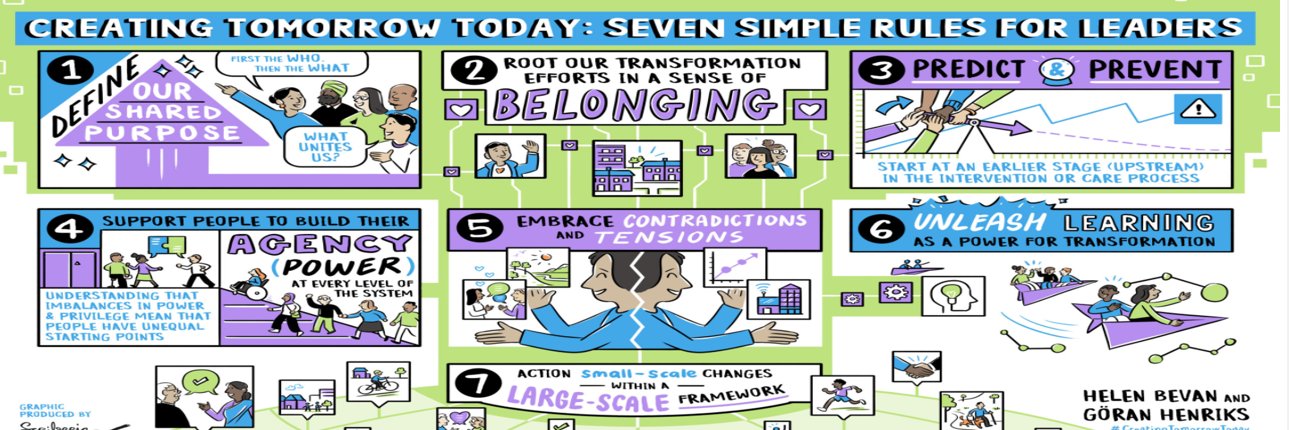
Helen Bevan
@HelenBevan
Change facilitator, strategist, speaker. Prof. of Practice in Health & Care Improvement @WarwickBSchool. Advisor @HorizonsNHS. Senior Fellow @TheIHI. Views own.
I’m continuing with the theme of not just managing new structures & processes in big system change but the need to work with deeper systemic forces at play. These are often emotionally driven. We ignore them at our peril. Some of the most interesting work in this field comes from…
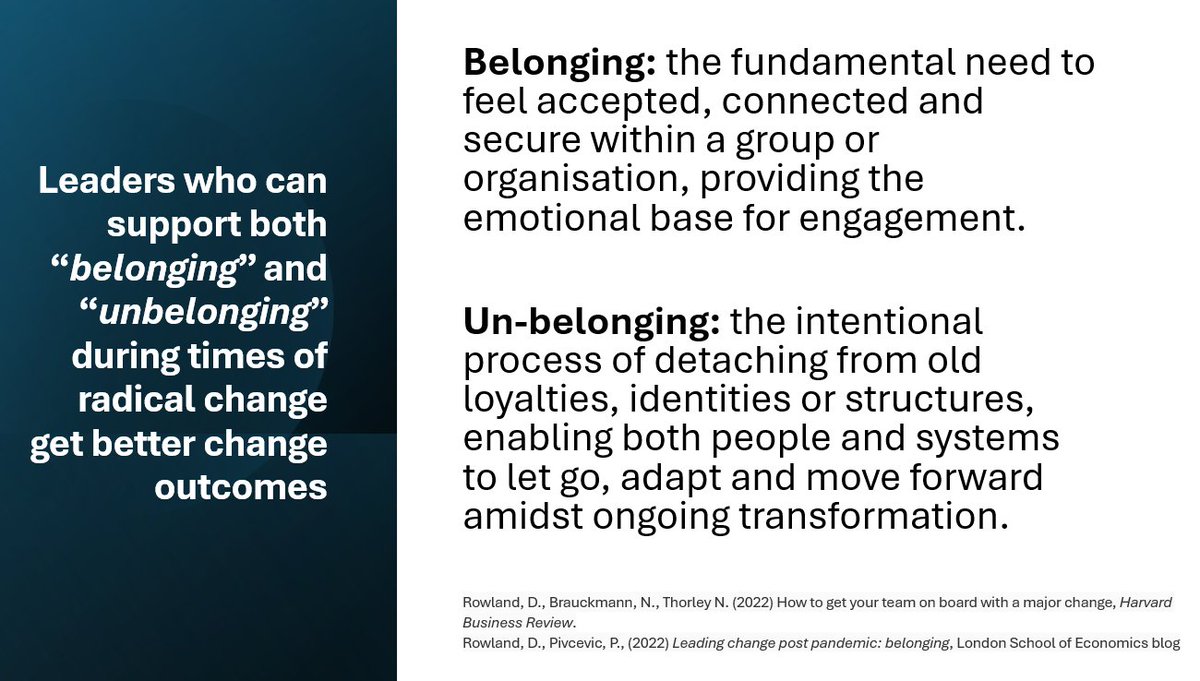
I’m at the @AOMCconference in Copenhagen for the next five days. There are 13,000 participants: researchers, teachers & practitioners in leadership and organisational topics from around the globe. This includes a very active healthcare management division. Today, I was proud to…

Organisational change is happening at a scale & pace we've rarely seen previously in the health & care sector. It is stirring up profound anxiety within teams. For leaders, understanding the powerful psychological undercurrents at play in driving group behaviour in times of…

I typically do not use the term “change management” (unless I’m working with a partner who wants or needs to use it). “Managing” change implies order, planning & stability; the ability to forecast, direct & deliver outcomes. Yet very few change or transformation plans deliver…
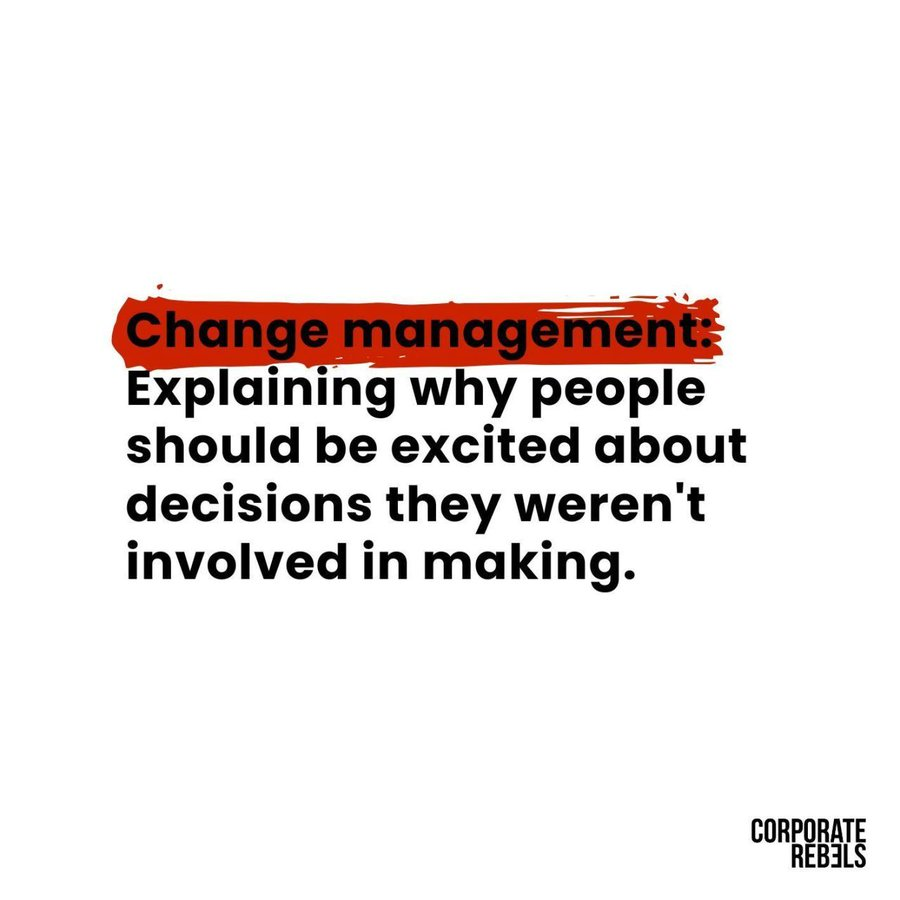
Why do so many leaders & professionals keep working at a punishing pace, even when it damages their health, well-being & relationships? And why do organisational initiatives aiming to curb extreme work hours, e.g., "no email after hours" policies, wellness initiatives - often…
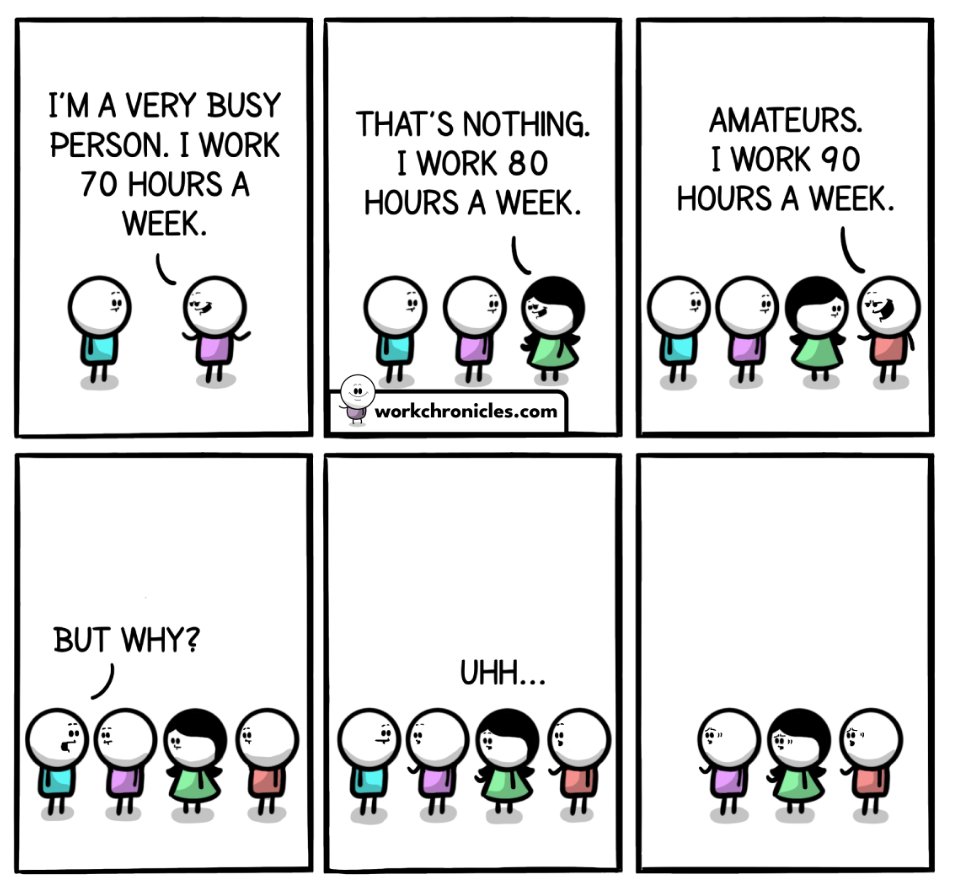
When it comes to making change happen, peer-to-peer (informal) influence is generally more powerful than the influence that comes from position (formal authority). Informal networks hold the sense-making power throughout an organisation, not senior leader-centric change. This…

Energy is a topic that has been growing in traction in the field of organisational & system change. I describe energy as the vitality that enables the system and the people in it to work together in a cohesive way, develop, grow and improve. Most change initiatives don’t die…

Facilitation skills are not just for change & improvement "experts". Every leader should have them. Organisations that integrate facilitation into their leadership approach report more productive & engaged teams, improved innovation & better decision-making. Facilitative…
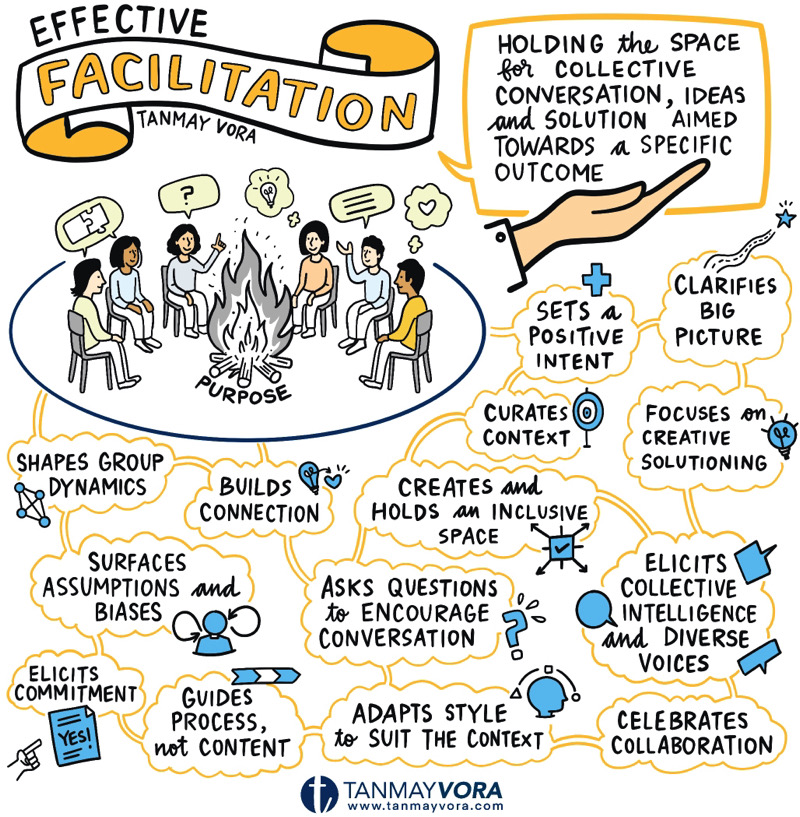
I’ve recently been working with frontline NHS teams to explore the powerful role that “microcultures” can play as enablers of change. Research points to the importance of “cultural readiness” & “relational connection” in creating the conditions for large scale change &…
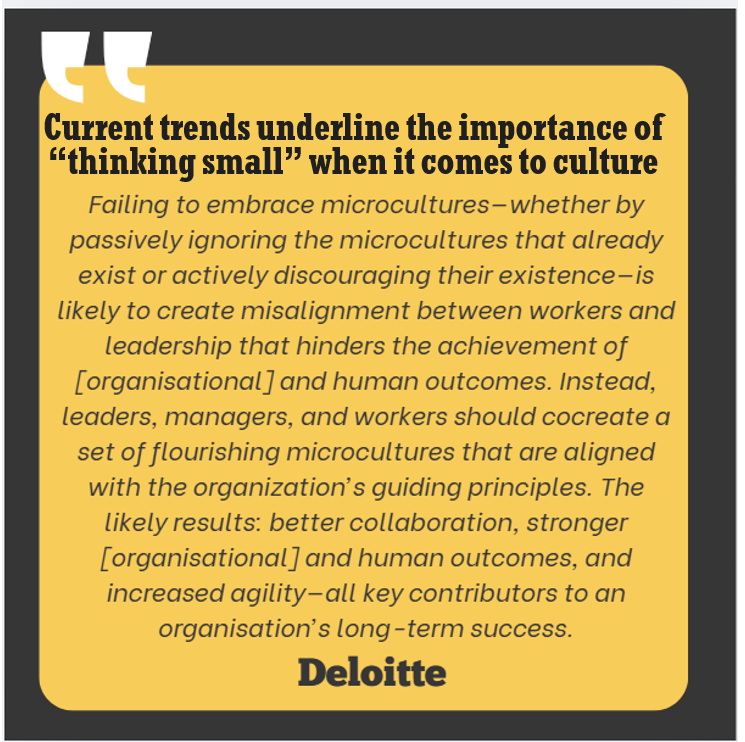
Why, when wise, experienced leaders make collective decisions, do they often make really bad decisions? In his new paper “A theory of collective stupidity in organisations - and possible remedies,” @geoffmulgan challenges conventional wisdom about leadership failure. He says…

Three modes of organising for improvement: (1) Doing things well (2) Doing things better (3) Doing better things An organisational improvement strategy should focus on all three. Many organisations currently are overfocussed on (1) & (2) and under focussed on (3). This is risky…
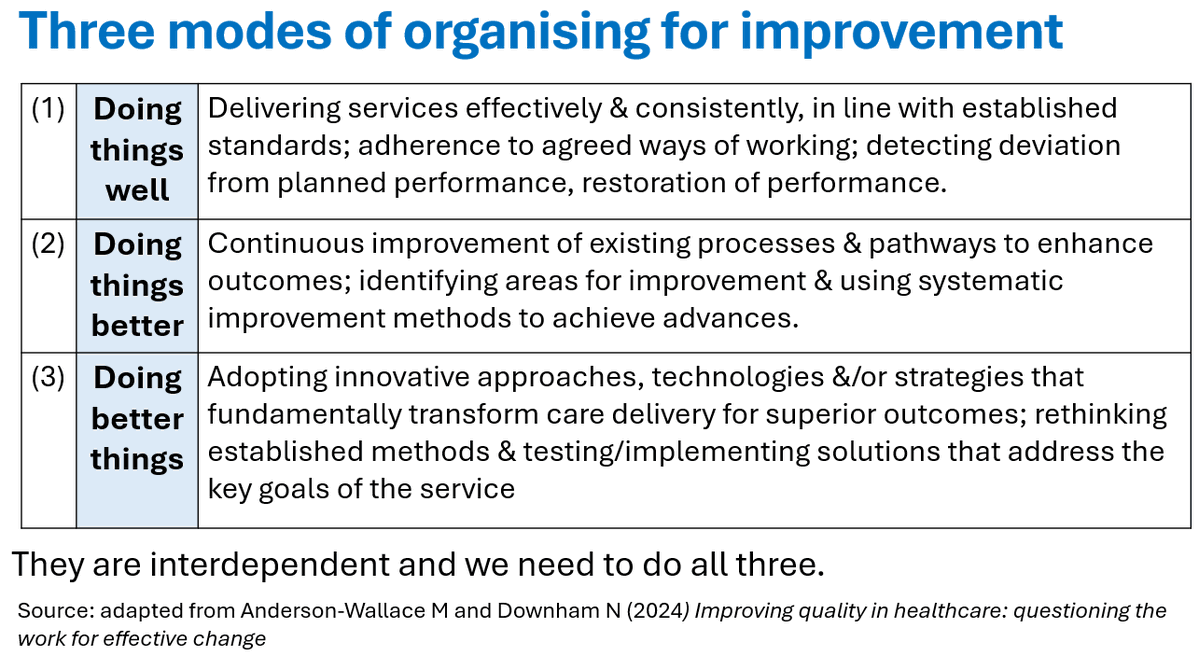
A new study looked at how using AI assistants like ChatGPT for writing tasks impacts the brain & thinking skills. It focussed on students writing essays but the findings have implications for workplace leaders. The researchers found that people who used AI used their brains less,…
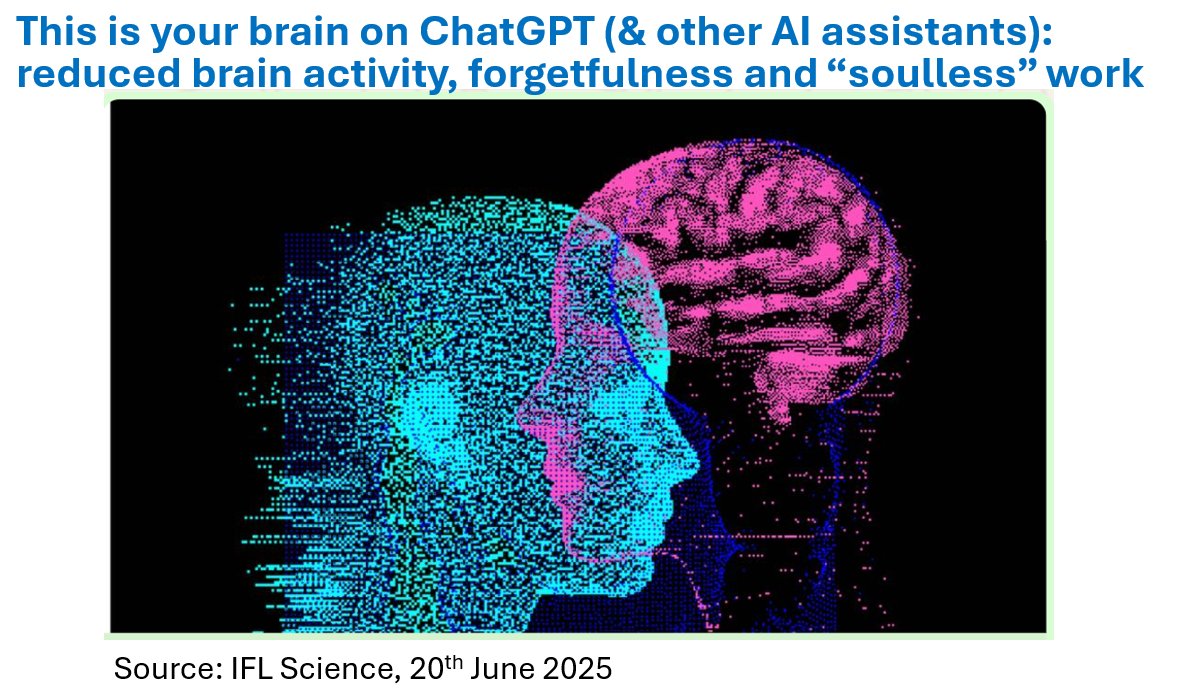
“Survivorship bias” is a BIG problem in the leadership of change. It’s what happens when leaders & decision-makers focus only on the visible successes of a change process and ignore the many others who attempted similar strategies but failed. They put the “successes” on a…
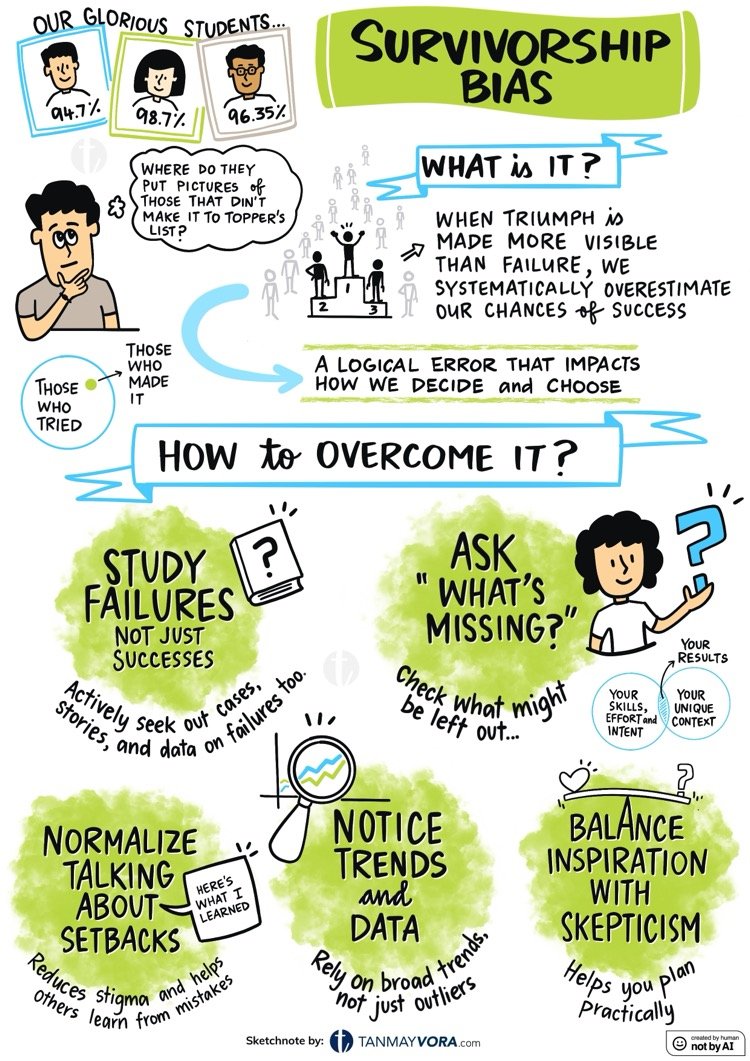
The "ladder of leadership" helps us think about how to build high performing teams. It sets out a progression of behaviours, starting from the lowest rung - “Tell me what to do" - & moving up through stages such as “Here’s what I see,” “Here’s what I think,” “I would like to…,”…

Most change plans don’t even consider or mention resistance to change. Yet it should be a primary focus in all our change interventions. Every change initiative starts out weak & vulnerable, without a track record of success. People are suspicious. They already have everyday…
